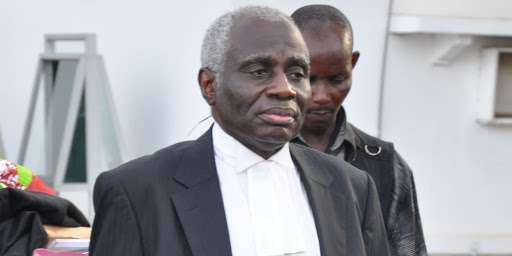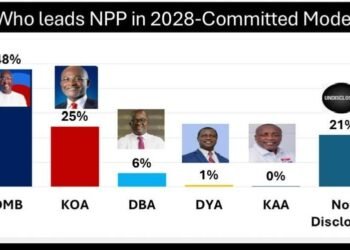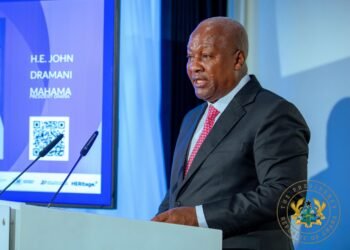Justice Owoahene Acheampong, the presiding judge for the SALL Parliamentary election dispute at the Ho High Court has denied the withdrawal of an application for judgment on admissions and set the stage for a comprehensive ruling on the election dispute.
The proceedings unfolded as the lawyer for the Petitioners, Tsatsu Tsikata sought to retract the application, which had been argued before the belated filing by the 2nd Respondent, Honorable John Peter Amewu.
Despite the efforts of the Petitioners’ lawyer to withdraw the application, Justice Acheampong was resolute in his stance and emphasized that he was not “ashamed to state that I know of no law or rule that allows me to allow an applicant to withdraw an application that has been moved’.
Even though, the presiding judge did not delve into the cases cited by Counsel for the Petitioners, Mr Tsatsu Tsikata, he deemed them as mere analogies.
However, Justice Acheampong refrained from awarding costs against the Petitioners, despite pressure from Mr. Kofitse, Counsel for Hon. Amewu.
Responding to the plea for costs, Mr. Philip Jimanor, representing Mr. Tsikata, pointed out that the late entry of Honorable Amewu into the proceedings prompted the application for withdrawal, aiming to expedite the legal process.
Following the dismissal of the withdrawal application, Justice Acheampong proceeded to deliver a ruling dismissing the Petitioners’ application for judgment on admissions.
According to him, though the petitioners did not seek declaratory reliefs in their petition, but rather sought to have the election set aside and re-run, their pleadings show that they were seeking a declaration that the election and its results were null and void.
Furthermore, Justice Acheampong emphasized that, per section 6 of PNDCL 284, only the High Court holds the authority to declare a Parliamentary candidate’s election null and void.
He highlighted the inconsistency in the petitioners’ claim that the election of the 2nd Respondent was null and void without formally seeking declaratory reliefs, hence the Petitioners should not have stated in paragraphs 32 and 33 of their petition that the election of the 2nd Respondent is null and void.
The judge firmly asserted that evidence must be presented before granting such reliefs, and declaratory reliefs cannot be obtained through applications but after a full trial.
“The petition must necessarily involve a declaration of whether the election was null and void before the reliefs sought by the petitioners could be granted”
Justice Owoahene Acheampong
Moreover, Justice Owoahene Acheampong clarified that the rule under which the application was brought, Order 23 of the High Court (Civil Procedure) Rules, does not provide for judgment on admissions but instead allows the judge to make orders on the admissions.
Justice Acheampong deemed the application for directions, filed by Counsel for the Petitioners after replying to the Respondents’ Answers, as premature.
However, Justice Acheampong adopted the application for Directions filed by Counsel for Petitioners on 19th January 2024 as regularly filed and made an order granting the Respondents twenty-one days to file any issues additional to the issues that had been filed by Counsel for Petitioners in the application for directions.
The court is set to reconvene on March 15, 2024, to decide whether to proceed with a trial or to hear legal arguments, marking a pivotal moment in the SALL parliamentary election dispute.
READ ALSO: Bawumia Campaign Team Denounces Alan’s Impact NPP Fortunes In Ashanti Region























